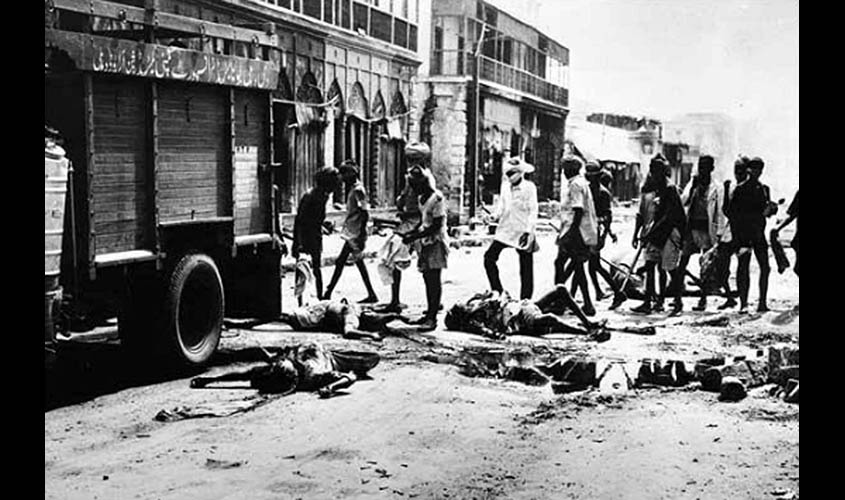SfJ has been silent about the massacres of Sikhs which took place in what is now Pakistan. The Sikh community deserves a reckoning of the torture it endured.
What took place in November 1984 in Delhi was an act of unspeakable horror against a community that had witnessed a holocaust in 1947, yet had the resilience to emerge as part of the vanguard of progress in India, not to mention play a notable part in its sword arm. Although the history of this valorous people stretches back 550 years, “Sikhs for Justice” (SfJ), an organisation headquartered in New York, acts as though the travails of the Sikhs began only in 1984. The group has been silent about the massacres of Sikhs which took place in what is now Pakistan, killings which resulted in the deaths of tens of thousands each month over several months of genocidal fury. Millions of Sikhs had to flee to what was left of this country after the Churchill-Jinnah pact to vivisect India became a reality in August 1947, a deed that had the most damaging impact on the Sikh community. Had the leaders of Pakistan been more far-seeing, they would have welcomed the continuance of Sikhs and Hindus within Pakistan, just as Mahatma Gandhi welcomed the remaining behind of Muslims in India despite his failure to keep the country united once Independence was secured from
The partition of India was touted by those responsible for it as being needed to avoid bloodshed. Instead, the unnatural division of a country that ought to have remained united was the trigger for mass killings on a scale that brought back memories of earlier massacres of huge numbers of people in parts of India. Had the Sikh community been permitted to remain in what became Pakistan, that country would have been far more prosperous and societally stable than is the case now. Far too little attention has been paid in history books to the manner in which an innocent group of people was forced through murder and rapine to relocate, the way another community was in Kashmir during 1990-91. Perhaps it is because history books detailing the events of 1947 are not easily found in US bookstores that Gurpatwant Singh Pannu of “Sikhs for Justice” seems unaware of what happened to his community in what is now Pakistan. During the Kartarpur Sahib events which took place last week, neither Pannu nor any other SfJ participant raised the issue of the need for at the least a Truth & Reconciliation Commission in Pakistan to look into the holocaust against the Sikh community in that part of the world. There is need to ensure that the agony of the Sikhs during 1947 does not get forgotten, but be researched more completely, such that the world becomes aware of what took place. In India, even if an unforgivable 34 years late, justice is finally getting carried out on at least a few of those who behaved in the manner of animals against a noble community. No individual in Pakistan was punished for his role in the mass murder of Sikhs in 1947. Why has SfJ legal advisor Pannu not asked his many friends in Pakistan why mass murderers of Sikhs were allowed to go free and even seize the properties of their victims? In Delhi in contrast, at long last the talons of justice are holding in their grasp some of those who committed a crime against the nation by ending the lives of so many valiant and patriotic citizens.
The Sikh community deserves at the very least a complete reckoning of the torture it endured in what is now Pakistan. History books in both India as well as Pakistan should describe in detail rather than largely ignore (as at present) the genocide of an entire community during the blood-soaked days of 1947. Certainly the 1984 murders of innocent Sikhs in Delhi is a matter of shame, but that should not be accompanied by a complete loss of memory within the SfJ of the events of 1947. A smidgen of justice is finally being done to the Sikh martyrs of 1984. It is time for Pannu to demand that a similar accounting take place in Pakistan, so that the names and faces of the butchers of 1947 become known and excoriated. Otherwise, Sikhs for Justice would not be doing justice to the Sikhs, a community that has blessed with prosperity wherever it has been allowed to settle.

